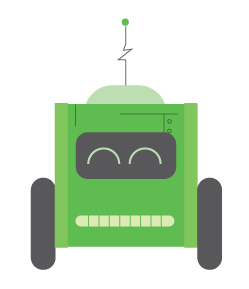Humans are interesting beings. Recently, I visited the Museum of Anthropology in Mexico, and I was surprised with the breakthroughs humans have made since they were gatherers and nomads.
In the Museum exposition, they had mammoth remains along with rudimentary tools that were used by the first hominids to hunt and cut the animal. That got me thinking about technology and the influence tools have on human life and the evolution.
Did you know that the definition of technology according to The Merriam Webster Dictionary is “the practical application of knowledge”? I always thought of technology as in computers. But it turns out that these are just a recent manifestation.
As I continued the tour in the Museum, it became more evident how technology correlates with biological and cultural evolutionary changes. At the end, technology is the result of applying scientific knowledge to improve quality of life and to solve needs.
The first tools that humans created were made from stone and had several purposes. These tools were the ones that facilitated an increase in the size of human brain, a boost in population and a rise on geographical coverage. Did you know that, due to the increase of brain size and to walking on two feet, human babies are born immature and need around 18 years of support from their parents to survive?
At the beginning, once that the tools fulfilled their mission, they were abandoned. Later, tools began to accompany the first hominids in their travels and the tools became more specialized.
One of the first specialized uses was in agriculture. Agriculture helped to keep a source of food that was safer than hunting and gathering. The new activity increased efficiency and reduced risks. This led to humans changing a nomad life for a sedentary one, and, as a result, altered the social and cultural system. This also promoted the development of an ecosystem around humans, which included the domestication of plants and animals. In Mesoamerica, corn is one of the species that is eaten heavily thanks to this process of domestication.
All civilizations and social groups achieved technological breakthroughs, which still benefit us today. For example, Egyptians created simple machines and Greeks invented basic steam machines with mechanical and pneumatic knowledge application. Also, Romans work tirelessly in transportation infrastructure like roads, aqueducts and tunnels. Indian civilizations left us important maritime knowledge, and Chinese gave us paper and gunpowder.
If we fast forward a couple of hundred years, the Industrial Revolution, that began in Great Britain between the 18th and 19th century, aimed at changing from a manual labor economy to manufacturing and industry. This allowed the application of steam motors to vessels and railways. Later, the telegraph and mass production were achieved.
The 2nd Industrial Revolution allowed the development of technology in chemistry, electricity and petroleum. And if we fast forward to this day, we are in the 4th Industrial Revolution, which seeks to automate processes and remove risks for workers thanks to computers, software and robots.
See why humans are interesting! Evolution and technology allowed biological changes that at first sight seem like a disadvantage: being born immature and needing more than ten years to learn and develop. However, we can see how thanks to the application of knowledge acquired through science, humans can survive and improve their quality of life constantly.
To read more about STEAM and our workshops:
[maxbutton id=”1″ ]
To read more about me and my team:
[maxbutton id=”3″ ]
These are some links in which you can read about these topics of technology and evolution:
https://science.sciencemag.org/content/291/5509/1748
https://es.wikipedia.org/wiki/Historia_de_la_tecnolog%C3%ADa
https://mna.inah.gob.mx/exposiciones_temporales.php#actuales
https://www.youtube.com/user/mantropologia
https://es.wikipedia.org/wiki/Museo_Nacional_de_Antropolog%C3%ADa_(M%C3%A9xico)

